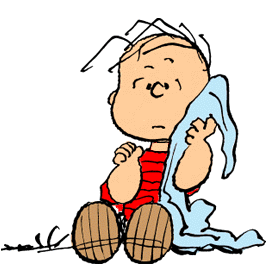After you become accustomed to the wide-eyed humanity of Kerouac's best prose, his poetry surprises you. Not that his playfulness, his off-the-cuff style is shocking, but the lack of linearity in most of it, the quick visions, word sketches, this thing he calls "spontaneous prose"; it comes to remind one of a mix of the detailed visions and scattered mind-noise combined from "Visions of Cody", his most non-linear work of literature. I'll be honest: I never thought it'd happen, but I just about wrote-off "Scattered Poems".
See, it's dumb to have expectations of a great artist. They are great because expectations can be mightily fleeced, and holy man, I was turned-around upon first discovery of this collection, my first exposure to Kerouac poetry. A collection of poems from a variety of publishing sources brought into a (very large) pocket size, "Scattered Poems" is a nice sampling of his verse, or anti-verse as I'm sure he'd have it. Or a-verse. So after reading about his escapades with Dean Moriarty across America, and his meditations of love and drug abuse in the heart-breaking "Tristessa", I get a poem, I shit you not, from page two of this collection called "Fie My Fum", which goes "Pull my daisy; Tip my cup; Cut my thoughts; For coconuts". Look, I understand Kerouac's intro, that the new "SF Renaissance" in poetry is made of "CHILDREN" and that "they SING, they SWING", but it was surprising to see something quite at this level of naivete so early in a collection from a very famous and influential man.
I've opened to it, though. Not necessarily "Fie My Fum", mind you; it's silliness and I appreciate it as such, but as art it doesn't strike me. But the pictures from "The Trashing Doves" in the back of the Chinese store in the midst of skid row do strike me with the ease of a master painter; every little detail culls this gloriously real image from the mundane until it zooms outward showing the neighborhood, the world around. And it is heart-breaking little pictures that make these poems interesting, timeless, their look at the small detail plainly spoken, but aptly spoken, what Kerouac means when he talks of "what is". Of course his emotion penetrates the image subtly, lovingly, yet at the same time, he manages to battle off sentimentality with meditations, again, on what is. Here's the first half of "POEM"...
I demand that the human race
ceases multiplying its kind
and bow out
I advise it
And as punishment & reward
for making this plea I know
I'll be reborn
the last human
Everybody else dead and I'm
an old woman roaming the earth
groaning in caves
sleeping on mats
Imaginative as it is, he still chronicles what is, the core of the vision. They all aren't bleak as this, however, still to the point of his mind pictures expressed in few words, appropriately chosen, to make his bid to your heart and mind.
You won't confuse this with the complex poets of the ages who have worked in complex rhyme schemes, timely wordplay, etc., but Kerouac's imprint on poetry was playful, child-like, and at the same time, philosophical toward the world and the life he so loved with the highest anxieties and wonder. If anything, it's shown me how to release my own pretensions as I create my verse. Whilst "Mexico City Blues" is oft pointed to as Kerouac's best verse (and it does bridge "Scattered Poems" high-level spontaneity with the more meaty themes of his best lit), "Scattered Poems" isn't to be completely shoved off, for it gives great insight into his frequently cited "spontaneous" methods, as well as his pure, unabridged mind.
